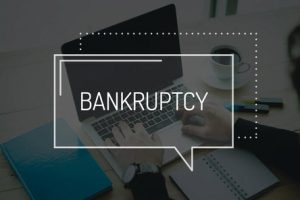Can Bankruptcy Save My Car?

In Illinois, moneylender may legally repossess vehicles after one missed payment. In these situations, lenders often promise to give owners more time to pay or change the payment date. But unless the lender makes such a promise in writing, which is very unlikely, these assurances are difficult to prove.
Furthermore, the Supreme Court has recently removed some of the consumer protections found in the Fair Debt Collection Practices Act. As a result, moneylenders and vehicle repossessors are more aggressive than ever.
So, if you are behind on your car payments, bankruptcy may be the only way to protect your family’s vehicle against sudden repossession. Additionally, there are advanced options in bankruptcy which may make the vehicle more affordable in the long term.
Preventing Pending Repossession
When debtors file bankruptcy, Section 362 of the Bankruptcy Code immediately goes into effect, in most cases. The Automatic Stay prohibits all creditor adverse action, including:
- – Repossession,
- – Foreclosure,
- – Lawsuits, and
- – Wage garnishment.
Typically, the Automatic Stay remains in effect as long as the bankruptcy is pending. So, if the debtor files a Chapter 13, the debtor has up to five years to catch up on past due auto loan payments. During that time, as long as the debtor makes the monthly payments, creditors can take no adverse action without special permission from the bankruptcy judge.
These monthly payments are based on the debtor’s disposable income. To calculate this payment, the trustee (person who oversees the bankruptcy for the judge) basically puts the debtor on an allowance. After all monthly bills are paid, all leftover income goes to retire delinquent auto loan payments and other secured obligations.
Undoing Prior Repossession
If the creditor has already repossessed the vehicle, it is difficult, but not impossible, for a bankruptcy attorney to get it back.
Under federal law, repossession companies may not commit a breach of the peace when they repossess vehicles. According to the Federal Trade Commission, a breach of the peace could be any of the following:
- – Physical force,
- – Threat of physical force, or
- – Opening an unlocked garage door.
Furthermore, under Illinois law, the moneylender must have a valid security agreement. Many times, this agreement may be bundled, bought, and sold multiple times. So, there is a good chance that, if an attorney presses the issue, a company may be hard-pressed to produce a valid, signed security agreement.
In bankruptcy, judges usually refer disputes such as these to mediation. There, the creditor has a duty to negotiate in good faith. So, the moneylender must be willing to make significant compromises to get a deal done.
Making Your Vehicle More Affordable
In many cases, Chapter 13 includes a redemption option. If you owe more on the vehicle than it is worth, this option could save you thousands of dollars.
Assume Ramon paid $30,000 for a new pickup truck in 2018. As is normally the case, the vehicle depreciated rapidly, and it is now only worth $20,000. Due to loan amortization (the debtor pays interest before principal), Ramon still owes $30,000.
If Ramon files bankruptcy, he could pay as little as $250 a month and own the truck outright at the end of the case. If he pays the lender the current fair market value, the lender must tear up the security agreement.
Count on Experienced Lawyers
Bankruptcy can save your car in the short term and make it more affordable in the long term. For a free consultation with an experienced Chicago Chapter 13 bankruptcy attorney, contact the Bentz Holguin Law Firm, LLC. We routinely handle matters in Illinois and Indiana.


